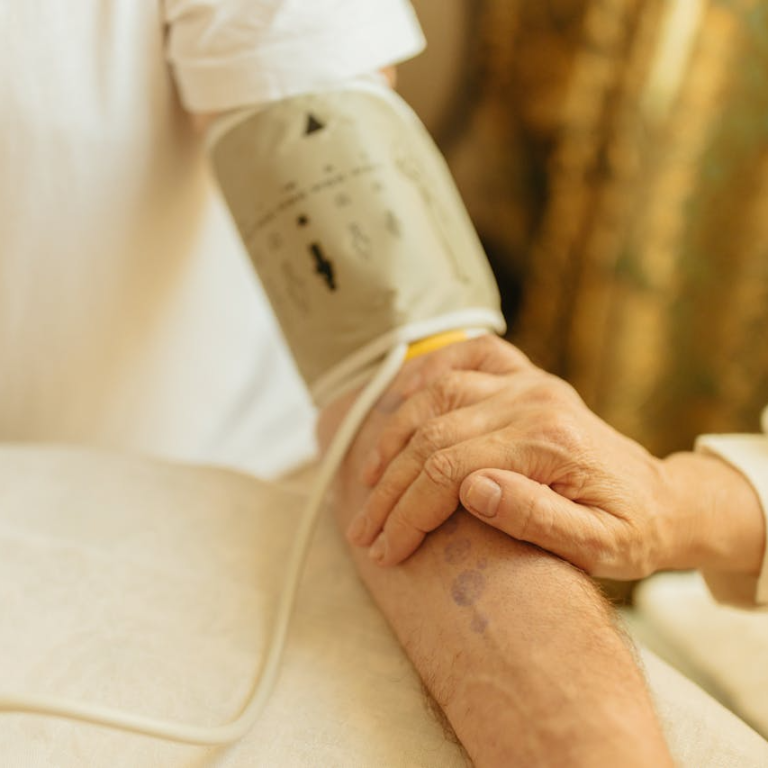Key Takeaways:
- Medicare‘s new caregiver training payments in 2024 will offer crucial support to families by reimbursing them for training costs, enhancing the care of elderly and disabled family members.
- This program empowers family caregivers with knowledge and skills to provide better at-home care, reducing the burden of caregiving and improving overall health outcomes.
Medicare’s New Caregiver Training Payments: How They’ll Help Families in 2024
Caring for aging or disabled loved ones can be emotionally rewarding but also financially and physically demanding. In 2024, Medicare has introduced a new initiative that will bring significant relief to families across the country: caregiver training payments. These payments will help cover the cost of training family members to care for their loved ones, ensuring they have the knowledge and skills to provide effective care at home. This initiative marks a meaningful step toward recognizing the vital role family caregivers play in the healthcare system. Let’s explore how these payments will support families in 2024 and beyond.
Understanding Medicare’s Caregiver Training Payments
Medicare’s caregiver training payments are part of a broader effort to support families caring for loved ones at home. In the past, caregiving has been an unpaid responsibility for many families, adding financial strain to emotional stress. This new Medicare benefit offers financial compensation for training that helps family members learn how to care for those with complex health needs.
These payments are designed to help cover the costs of training courses, instructional materials, and sometimes even travel expenses associated with caregiving education. By providing this assistance, Medicare acknowledges the value of family caregivers, who often save the healthcare system significant costs by providing care in the home rather than relying on long-term care facilities.
Who Qualifies for Caregiver Training Payments?
One of the critical aspects of this initiative is ensuring that it is accessible to as many families as possible. To qualify, the family caregiver must be responsible for providing care to a Medicare beneficiary who requires assistance with activities of daily living (ADLs), such as bathing, dressing, and eating, or has medical conditions that demand specialized care.
Medicare beneficiaries who qualify for caregiver support typically include elderly individuals, those with chronic illnesses, or people recovering from surgery. Caregivers themselves must enroll in approved training programs that provide the necessary education on caregiving techniques, patient safety, and managing specific medical conditions at home. These programs may be offered online or in person, and costs will vary depending on the level of training needed.
The Importance of Caregiver Training for Families
Caregiving can be a daunting task, particularly for family members with little or no formal healthcare experience. Medicare’s caregiver training payments provide family caregivers with the skills and confidence to handle the physical, emotional, and medical needs of their loved ones. This training can reduce the likelihood of caregiver burnout, a common issue that can lead to physical and mental exhaustion.
Training programs cover a wide range of essential skills, including:
- Basic medical care: Learning how to administer medication, monitor vital signs, and recognize symptoms that require medical attention.
- Assisting with mobility: Safely helping loved ones move from bed to wheelchair, or preventing falls when walking.
- Personal care: Providing assistance with bathing, dressing, and other hygiene-related tasks in a way that preserves dignity.
- Communication skills: Effectively communicating with healthcare providers, interpreting medical information, and ensuring that the loved one’s wishes are respected.
With this training, caregivers are better equipped to handle the complexities of home care, improving both the caregiver’s and patient’s quality of life. The training also alleviates some of the stress and anxiety that comes with feeling unprepared or uncertain in providing care.
How These Payments Will Improve Care at Home
The introduction of caregiver training payments is expected to significantly improve care for Medicare beneficiaries at home. By providing family caregivers with the tools they need to succeed, the overall quality of care will improve. Patients will benefit from being able to stay in familiar surroundings while receiving care tailored to their individual needs. Here are a few ways these payments can make a difference:
Reduced Hospital Readmissions
Hospital readmissions are costly for both patients and the healthcare system. When caregivers are properly trained, they are more likely to spot potential health issues early, manage chronic conditions effectively, and prevent situations that could lead to hospitalizations. Proper training reduces the chances of mistakes, such as medication errors, which can often lead to readmissions.
Enhanced Emotional and Physical Well-Being of Caregivers
Caring for a loved one can take a toll on caregivers, both physically and emotionally. However, when caregivers are trained, they feel more confident and capable, which can reduce stress and lead to better mental health. Additionally, proper training can prevent physical injuries related to caregiving tasks, such as lifting or transferring a patient.
Financial Savings for Families
While Medicare’s caregiver training payments do not cover every aspect of caregiving, they help offset some of the costs associated with caregiving education. Many families are already stretched thin financially, and this program can ease some of that burden, allowing caregivers to focus on providing the best possible care without worrying about the financial strain of training.
A Step Towards More Inclusive Healthcare
This initiative highlights Medicare’s recognition of the importance of family caregivers in the healthcare ecosystem. It represents a step towards more inclusive healthcare, where family members are considered a vital part of the patient care team. By investing in caregiver training, Medicare is also investing in the well-being of millions of Americans who rely on loved ones for daily care.
What Training Programs Will Be Covered?
Caregiver training programs that are eligible for Medicare payments must meet specific criteria. These programs are typically certified by healthcare organizations and provide comprehensive training on various caregiving aspects. Some may focus on general caregiving skills, while others are designed for specific conditions like dementia or post-operative care.
Medicare-approved training programs will often be available through hospitals, local health agencies, and online platforms. Caregivers should seek guidance from their loved one’s healthcare provider to determine which program best fits their situation. By participating in these programs, caregivers can ensure they are providing the highest quality care.
Future Outlook: Long-Term Benefits of Caregiver Training
The long-term benefits of Medicare’s caregiver training payments go beyond immediate financial relief. This initiative represents a shift in how the U.S. healthcare system views family caregivers. By acknowledging their role in patient care, Medicare is paving the way for more supportive policies in the future.
Family caregivers will become more empowered to manage their loved ones’ care effectively, which can delay or even prevent the need for nursing home placement. This not only helps keep families together but also reduces the burden on long-term care facilities, which are often overburdened and understaffed.
Encouraging More Families to Provide Care
With the cost of professional care rising, more families are turning to home care as a viable alternative. Medicare’s new caregiver training payments will encourage even more families to consider providing care at home, knowing they will receive support in the form of training and financial assistance.
As the aging population in the U.S. continues to grow, the demand for family caregivers will increase. This initiative is a forward-thinking solution to one of the biggest challenges facing the healthcare system today: providing quality care for an aging population while managing costs.
Empowering Families Through Training Support
By compensating families for caregiver training, Medicare is sending a clear message that family caregivers are an essential part of the healthcare system. In 2024, this initiative will help alleviate some of the financial strain associated with caregiving while ensuring that loved ones receive high-quality care at home. For families, this program offers not just financial support but also the knowledge that they are equipped to provide the best possible care for their loved ones.
Ultimately, this initiative enhances the quality of life for both caregivers and patients, ensuring that families can care for their loved ones with confidence and competence.
Looking Ahead to a More Supportive Caregiving Environment
Medicare’s caregiver training payments in 2024 mark a significant shift in recognizing the value of family caregivers. This initiative will empower families by providing them with the financial means and training necessary to offer quality care at home. With the aging population growing, this program will be an essential tool in strengthening family caregiving support in the years to come.










